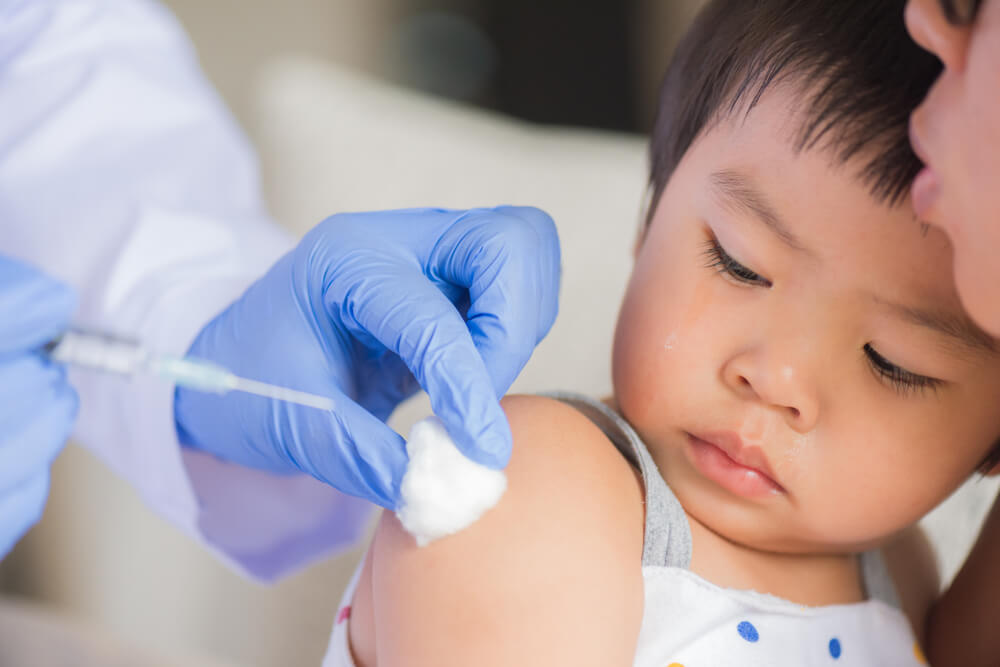Immunizations are a crucial part of your child’s health management, though unfortunately, they have become a hot-button topic in recent years. Vaccines are life-saving tools that will protect your child, from infancy to adulthood, and keep them safe from preventable life-threatening illnesses.
Equally importantly, ihttps://www.toplinemd.com/ana-hpmd/well-visits/https://www.toplinemd.com/ana-hpmd/well-visits/mmunizations help protect our loved ones and communities, and they are safe and effective. If you are debating the importance of child immunization, it is important to discuss your concerns with your doctor. They will be able to answer your questions and alleviate any concerns you may have about why immunization is important.
How Vaccines Work to Protect Against Illness
Immunization is the process the body undergoes to develop defenses against an illness-causing virus or bacteria. When a body’s immune system comes in contact with one of these viruses or bacteria, typically the person becomes ill and then develops an immunity to the disease because now the body recognizes the disease’s signature and understands how to fight it with antibodies.
Our bodies’ immune systems grow stronger as we get older, but newborns and young children are more susceptible to viruses and bacteria. Vaccinations are a safe and effective way to boost your child’s immune response to rare but life-threatening illnesses without them having to be infected first.
Vaccines are carefully developed to evoke this immune response. Molecules from the pathogen (disease-causing virus or bacteria), called antigens, are injected into the body, and the immune system builds antibodies. If your child comes in contact with the live pathogens in their life, the immune system remembers and the antibodies mount their defense and attack.
It is important to understand that the antigens used in vaccines are not full-power, live viruses or bacteria. Vaccines carry weakened, partial, or dead pathogens — just enough for the body to learn to recognize the disease’s unique signature and build antibodies to fight it later.
Why You Should Vaccinate Your Child

You should speak to your child’s pediatrician if you have any concerns over why you should vaccinate your child. They can give you scientific answers to all your medical questions and alleviate your worries. Importantly, they can also help you understand your child’s vaccination schedule, ensuring that your child is immunized at the right stages and there are never lapses in prevention. But to get you started, here are five important reasons to vaccinate your child.
- Keep Your Child Healthy
The main purpose of vaccines is to keep your child alive and healthy. It may seem obvious, but it bears repeating because immunizations work effectively to protect your child from life-threatening illnesses. With modern medicine, there is no reason children should have to die from preventable diseases like whooping cough (pertussis). No one imagines their child will catch a life-threatening illness, but, as the article “Making the Vaccine Decision: Addressing Common Concerns” from the CDC points out, “You always make sure to buckle your child in his car seat even though you don’t expect to be in an accident.”
- Protect Your Community
You may have heard the term “herd immunity” when learning about immunizations. Herd immunity refers to the point at which the number of people in a community who are vaccinated for a given illness reduces the chance for a disease to become an outbreak. At this point, even unvaccinated people benefit. However, this does not mean that people can pick and choose their vaccinations. Any healthy child should be vaccinated fully to protect themselves and others by contributing to herd immunity. There are children with certain chronic conditions that make some vaccinations dangerous, and if other children are vaccinated it helps protect the unvaccinated child from contracting illnesses too.
- Eradicate Illness
Many people wonder why they should inoculate their children against rare diseases like polio when the odds of their child contracting such an illness seem astronomically low, but this is a fallacy. In fact, polio was once a disease that ravaged the country and killed or paralyzed over half a million people yearly at its peak and parents lived in fear of their children contracting it. The reason polio is so rare now is precisely because of the polio vaccination. It’s a similar story with smallpox. A deadly disease that killed millions is now functionally extinct, largely because of the role immunizations had to play. The hope is that with continued vaccinations against deadly illnesses, these diseases can be eradicated within a few generations.
- Safe Prevention
Vaccines are considered some of the most effective and easy-to-administer medical interventions out there. They go through numerous trials and are closely regulated and tested before they become available to the public. Vaccines do not cause conditions like autism — the original assertion that there was a link was fraudulent and countless studies have since disproved any link between them, which you can read more about in this Should You Vaccinate Your Child essay. Yes, some vaccines cause minor side effects like fatigue, redness, or low-grade fever, but unless your child is immunocompromised, vaccine side effects are minor compared to effects of the diseases they protect against.

- Save Money
On the subject of prevention, vaccines can also save your family money in the long term. Healthcare in the United States is a **trillion-**dollar industry. Trillion. We know that preventative actions and medicine can mitigate steep medical costs later on in life. For example, education about healthy eating can prevent the development of conditions like diabetes or hypertension, which can be stressful and expensive to treat. Your child’s vaccines will be covered by your family’s health insurance policy, and if you don’t have health insurance programs like vaccines for children can help make sure your child is vaccinated at no cost. A cheap or free vaccine now can protect your child from a difficult illness and the medical bills associated with it.
Finding a Great Pediatrician
Your child’s doctor can guide you through their vaccination schedule and discuss your concerns with you. You should feel comfortable interviewing more than one pediatrician until you find one you “click” with — remember, this doctor will likely be seeing your child from birth until they go off to college! You can get recommendations from friends and family or your OB-GYN. A great pediatrician will have a good mix of professionalism, communication skills, medical understanding, and bedside manner, and you need to feel comfortable asking them about your child’s health so make sure it’s someone who listens to you and provides you helpful answers. When you have a pediatrician, be sure to discuss immunization options and to follow their advice and the vaccination schedule they lay out.
Conclusion
So to conclude, it is very important that you vaccinate your child on schedule — the schedule ensures there are no lapses in protection. Immunizations save lives. They prevent life-threatening illnesses both in your child and in your greater community through herd immunity and can lead to the extinction or near-extinction of many of these deadly diseases. They are effective and safe, with typically minor side effects and ingredients that can be found in many everyday products, and they are inexpensive or free for your child, saving you money over time. There are many more great reasons to vaccinate your child, but saving their life is at the top of any list. If you have any hesitations about vaccinating, consult your pediatrician, and they can answer your questions and walk you through the vaccine schedule.




